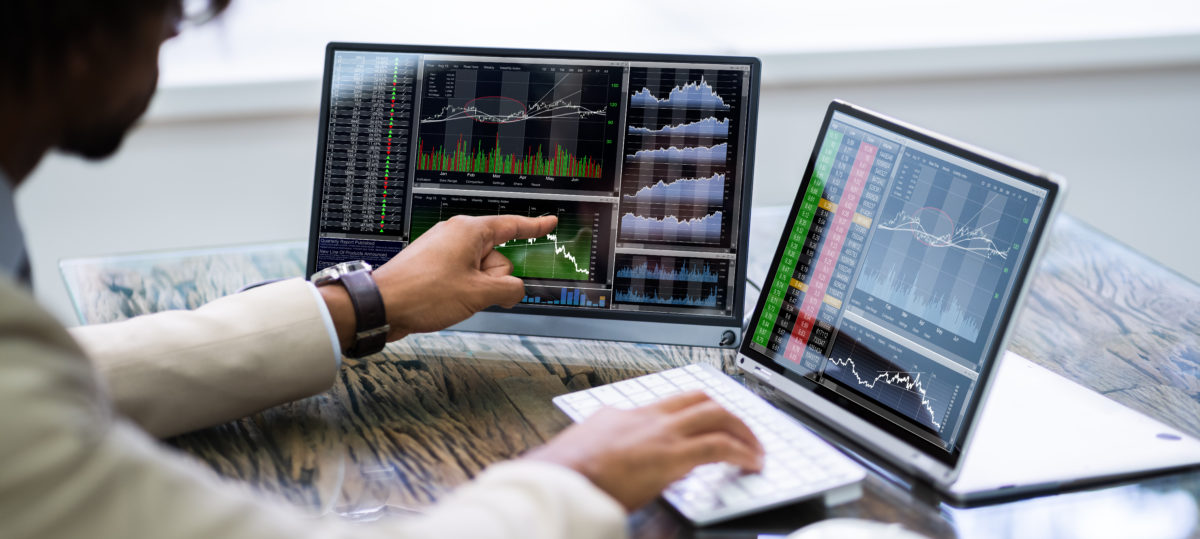The significance of trading psychology cannot be overstated. It encompasses the mental and emotional elements that significantly influence decision-making in trade flow.
Understanding and mastering trading psychology are pivotal because they shape a trader’s behaviour and strategy implementation and have a profound impact on the outcomes of trades. Thus, exploring this facet is essential for anyone seeking long-term success in the volatile trading world.
The Critical Role of Trading Psychology
Trading psychology is at the heart of every trading decision and action. It fundamentally affects how traders perceive, react to, and capitalise on market fluctuations.
An in-depth understanding of psychology is crucial as it enables traders to maintain emotional equilibrium and make decisions not swayed by emotional extremes or cognitive biases. This awareness is key to developing effective trading strategies under diverse market conditions and can withstand the emotional rollercoaster that trading can often become.
The Impact of Emotions on Trading
Understanding how emotions impact trading can help traders make more informed decisions and avoid common pitfalls. Here are some key ways emotions influence trading:
Overconfidence and Euphoria:
Overconfidence and euphoria in trading refer to the tendency of traders to become excessively optimistic about their abilities and market conditions. This can occur after a series of successful trades, leading them to believe they have a special insight. Moreover, these emotions make traders feel like they have skills that make them immune to losses.
Fear:
Fear is often characterised by the irrational dread of losing money or the fear of making a wrong decision. This emotion can impede a trader’s ability to function effectively in the market. Therefore, this can lead to significant trading paralysis, where traders hesitate to enter potentially profitable trades or exit them prematurely, thus missing out on substantial gains.
In extreme cases, it results in traders liquidating their positions far too early, driven by a disproportionate fear of losses, thereby sacrificing potential profits for perceived safety. Particularly prevalent in bear markets, fear can dominate the trading environment, leading to an overall market sentiment that is overly cautious and risk-averse.
Greed:
Greed manifests as an overwhelming desire to make more money, pushing traders to make imprudent decisions and take excessive risks. It clouds judgment, making traders prone to overestimating their knowledge and underestimating risks, thus jeopardising investments.
Greed often compels traders to hold onto winning positions too long, ignoring signs that they should take profits, resulting in those positions becoming lost—a scenario colloquially known as “pigs get slaughtered.” Seen prominently during speculative bubbles, where the allure of easy profits can lead to irrational trading behaviours and decisions.
Regret and Revenge Trading:
Regret and revenge trading occur when negative emotions drive impulsive decisions. These emotions arise when traders feel disappointed or guilty about missed opportunities or losses. It can lead them to take reckless actions to “make up” for those missed gains, such as buying back into a rising market at a high point.
Revenge trading is the attempt to quickly recover from losses by taking large risks or doubling down on losing positions, hoping for a turnaround. This behaviour can deepen losses and destabilise tradingdestabilisetional cycles may also lead traders to neglect risk management, ultimately increasing their exposure to financial risks.
Cognitive Biases in Trading

Cognitive biases are systematic patterns of deviation from rationality that affect decision-making. These biases can lead to irrational choices, poor risk assessment, and suboptimal outcomes in trading. Here are some common cognitive biases in trading:
Negativity Bias:
This bias leads traders to focus more on negative outcomes than on positive ones, often skewing their perception of an otherwise balanced situation. It can prompt traders to abandon a well-considered strategy after a few setbacks, overlooking its potential long-term benefits.
Hindsight Bias:
This bias involves believing that one could have predicted an event after it happened, often leading to misplaced confidence in one’s predictive abilities. Encourages overconfidence, where traders believe they can foresee market movements more accurately than possible, often leading to aggressive and ill-considered trades.
Gambler’s Fallacy:
The fallacy that past events influence future probabilities leads to the mistaken belief that a departure from what has occurred in the past is due soon. This can cause traders to make decisions based on the expectation of a statistical ‘balancing act,’ which does not apply to market movements.
Loss Aversion:
Loss aversion, where the pain of losing is greater than the pleasure of winning, can cause traders to hold on to losing positions, hoping for a reversal. This can result in larger losses and missed opportunities to cut losses early.
The Influence of Personality Traits
Personality traits such as discipline, patience, confidence, and decisiveness are critical in shaping a trader’s approach and market effectiveness. These traits can both positively and negatively impact trading results, depending on how they are channelled:
- Positive Effects: Essential for the consistent application of trading strategies and for navigating through the ups and downs of market dynamics.
- Negative Effects: However, if not properly balanced, these traits can lead to a trader’s downfall. For instance, overconfidence can lead to reckless trading decisions, while lacking flexibility can result in missed opportunities.
Therefore, using demo accounts in simulated trading scenarios can be an excellent way for traders to hone these traits without financial risk. Moreover, traders should strive to maintain humility and adaptability, avoiding the pitfalls of rigid thinking and overconfidence.
External Pressures Affecting Traders

Whether novice or seasoned, traders navigate a complex landscape of internal and external pressures that significantly influence their financial decisions and the potential for profit or loss. Among the external pressures, herd behaviour stands out as a prominent factor. This tendency involves individuals mimicking the actions of a larger group, often without conducting thorough research, driven by a fear of missing out. This phenomenon can lead to irrational market rallies and sharp sell-offs, as was evident during speculative bubbles like the dot-com bubble.
To mitigate such influences, traders should seek inspiration and guidance from experienced professionals. However, maintaining a personal trading strategy that aligns with one’s risk tolerance and capital allocation is critical. This approach ensures traders do not unthinkingly follow the crowd but make informed decisions that suit their financial goals and risk appetite.
Enhancing Trader Psychology
Enhancing trader psychology involves cultivating the right mindset and discipline to navigate the markets successfully. It’s more than technical skills; it requires emotional control, focus, and resilience. Here are some effective strategies to enhance trader psychology:
Establishing Personal Rules:
One fundamental tip for improving trading psychology is to establish personal trade rules. These rules should define risk tolerance levels, specify entry points, stops, and limits, and thus automate decisions. With clear guidelines, traders can operate within a structured framework that minimises emotional interference.
Adherence to the Trading Plan:
Sticking to the trading plan is another crucial strategy. Traders should test their established plan in a risk-free environment. This practice helps avoid emotional decision-making and ensures that all actions are well-considered and backed by strategic planning.
Conducting Thorough Research:
Avoiding assumptions about market movements is essential. Starting with analyst insights is a good step, but thorough due diligence is crucial before trading decisions. This in-depth research helps traders understand the underlying factors driving market movements and ensures that their strategies are based on solid data rather than speculation.
Regular Assessment of Performance:
Regularly reviewing outcomes and progress is vital for continuous improvement. Tools like Performance Analytics at FOREX.com can be instrumental in helping traders identify and correct bad habits, thereby enhancing their trading efficacy.
Mastering Trading Psychology

Experience and adherence to a well-crafted trading plan are paramount in keeping strategy uninfluenced by emotions and biases. Practising with a demo account, such as the one offered by City Index, which provides £10,000 in virtual funds, allows traders to hone their skills in a risk-free environment. Understanding that different markets require different approaches and mindsets also aids traders in adapting their strategies to meet specific market demands.
Market Psychology Profiles
Market psychology profiles reflect traders’ collective mindset and behaviour in different financial markets. They offer insights into the common traits, approaches, and emotional triggers among participants, which can influence decisions and market trends. Understanding these profiles can help traders tailor their strategies and manage risks more effectively.
Forex Market
The Forex market is known for its volatility, necessitating quick thinking and disciplined trading. Traders in this market often rely on technical analysis to base their decisions on quantitative data, steering clear of emotional biases.
Stock Market
Conversely, the stock market attracts more patient traders focusing on fundamental analysis, such as assessing company earnings and value. Traits necessary for success in the stock market include patience for research and identifying the right opportunities. However, there is a vulnerability to impulsive decisions triggered by high-profile news stories.
By understanding these varied market psychology profiles and applying the above strategies, traders can significantly improve their psychological resilience and trading performance, leading to better outcomes and potentially higher profitability in their trading endeavours.











COMMENTS